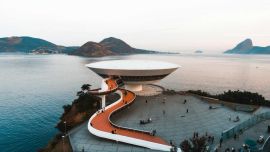Argentina’s top two presidential candidates, set to face off in a run-off election on November 19, have diametrically opposing views on everything from economic to foreign policies, and most notably on what the ideal size and role of the state should be.
Economy Minister Sergio Massa’s surprising Sunday comeback was in no small measure influenced by the social programmes he expanded on the eve of the election. But it was also the result of a marketing campaign showing how much higher prices of fuel, utilities and public transportation would be if his adversary Javier Milei becomes president and he delivers on a pledge to scrap all subsidies.
While Argentina’s fiscal policies are unsustainable — the Central Bank can’t keep financing government spending without fanning inflation that’s already running at almost 140 percent a year — Massa knows how poor Argentines rely on subsidies to survive the economic crisis his own policies have created.
Here are the most striking differences between their plans.
Peso versus dollar
The future of the national currency stands as one of the most talked-about disagreements between the representative from the incumbent Peronist party and his libertarian adversary.
- Milei intends to replace the peso with the dollar, a high-risk, high-reward gamble that could either exacerbate inflation or stamp it out. Down the road, he would even get rid of the Central Bank, an institution he says is committing a crime by printing money in order to finance government spending.
- Massa, on the other hand, considers both the peso and the Central Bank as instruments of Argentina’s sovereignty and plans to keep them.
Role of the state
Perhaps the most consequential difference between both candidates is their opposing views on the role of the state in a developing economy such as Argentina’s.
- Milei has a drastic proposal to shrink the size of government: It includes privatising loss-making public companies, making massive cuts to government spending and even replacing public healthcare with a private system whose costs would be covered by universal health insurance.
- While Massa is well aware he’ll have to implement austerity measures to a substantial degree — he's now talking about a budget surplus of one percent of gross domestic product next year — his approach would be more gradual and potentially easier for Argentines to stomach.
Some investors consider Massa’s plan more politically feasible given Peronism’s support in Congress, perhaps the only one able to avoid social unrest in a country where more than 40 percent of the population lives in poverty and relying on handouts to make ends meet. Yet the International Monetary Fund warned Argentina has no time for gradual policies.
Foreign policy
While touting his relationship with US administration officials, Massa has deepened Argentina’s diplomatic ties with China and Brazil, the country’s top trading partners. He returned from Beijing earlier this year with China’s approval to spend more from a swap line between both countries.
Brazil’s President Luiz Inácio Lula da Silva also supported Massa’s presidential bid, advising him to disregard austerity commitments made to the IMF and do the necessary to win the election. A team of marketing advisers from Lula’s Workers’ Party (PT) was also sent to Buenos Aires to work on Massa’s campaign.
Milei, on the other hand, has said he would cut diplomatic ties with Lula and Chinese leader Xi Jinping, calling the latter an “assassin” who doesn’t allow his people to live freely. Instead, Milei wants to improve ties with the US and Israel.
Climate change is another point of diversion, with the libertarian candidate saying global warming is not the result of human action. Massa, on the contrary, vowed to promote environmental policies consistent with economic growth.
related news
by Walter Brandimarte & Patrick Gillespie, Bloomberg


















Comments